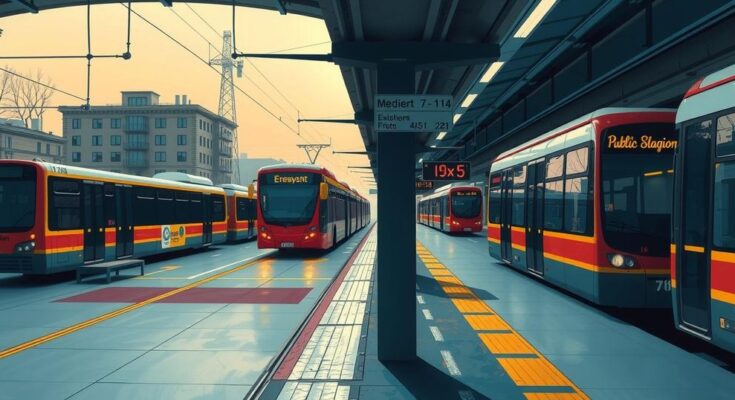As Berlin grapples with the aftermath of a two-day transport strike, hope flickers on the horizon. On Thursday, BVG, the public transport operator, and the Verdi union agreed to engage in mediation to resolve their ongoing wage conflict. This agreement heralds a potential end to the chaos that has disrupted the city’s transport network.
The mediation talks will kick off on Friday, with both parties selecting key figures to facilitate discussions: Matthias Platzeck, a former Brandenburg premier, for BVG, and Bodo Ramelow, a vice president of the Bundestag, for Verdi. This collaborative effort aims to reach a solution by April 10th, under the auspices of a “peace obligation” clause that prohibits further strikes during negotiations, offering some relief to commuters.
Despite the mediation’s hopeful dawn, the current 48-hour strike persists until 3am Friday, leaving buses, trams, and U-Bahn services suspended. Meanwhile, Verdi is simultaneously holding a ballot for union members to consider indefinite strikes, which hinges on a two-thirds majority rejecting BVG’s latest proposal, although no new strikes can be called until at least April 10th.
At the crux of their dispute lies the demand for improved pay and working conditions for approximately 16,500 transport workers in Berlin. Verdi is seeking a €750 monthly pay increase, additional bonuses for less desirable shifts, and a Christmas bonus. In contrast, BVG has introduced a counter-offer with a 17.2% wage increase specifically for drivers, yet this has been met with dissatisfaction from Verdi, which calls the offer insufficient.
The road ahead is uncertain. As the independent mediators spur dialogue, BVG has optimistically embraced this step as a positive move for its employees and the commuting public. “Good news for our employees and all Berliners,” they heralded at a recent press conference. Verdi’s negotiator Jeremy Arndt echoed this sentiment, expressing encouragement about shaping a fair evaluation of the BVG employees’ worth in today’s economy.
Following a two-day public transport strike in Berlin, BVG and the Verdi union will enter mediation to resolve wage disputes, with talks starting Friday and expected to conclude by April 10th. This mediation prohibits further strikes, although a current strike continues until Friday morning. Verdi is demanding significant pay increases while BVG has made a counter-offer viewed as insufficient. The outcome is uncertain, yet both sides remain cautiously optimistic about reaching an agreement.
As the dust settles from the two-day strike, mediation offers a flicker of hope for Berlin’s embattled public transport system. While negotiations are underway, the outcome remains uncertain, as both sides grapple with significant demands amid financial constraints. With the looming mediation period promising a break from immediate unrest, all eyes will be on the coming weeks to see if an agreement can be reached.
Original Source: www.thelocal.de



